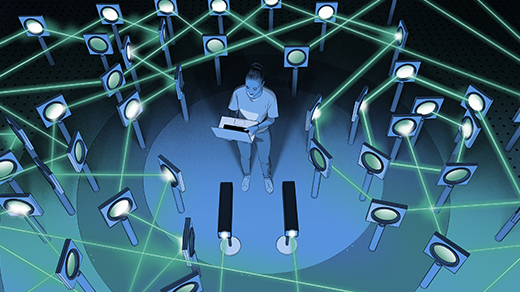2019 in Review
Latest Articles
What Can a Cell Remember?
A small but enthusiastic group of neuroscientists is exhuming overlooked experiments and performing new ones to explore whether cells record past experiences — fundamentally challenging what memory is.
Why the Key to a Mathematical Life is Collaboration
Fan Chung, who has an Erdős number of 1, discusses the importance of connection — both human and mathematical.
Quantum Scientists Have Built a New Math of Cryptography
In theory, quantum physics can bypass the hard mathematical problems at the root of modern encryption. A new proof shows how.
Why Did The Universe Begin?
In this episode of The Joy of Why, Thomas Hertog discusses his collaboration with Stephen Hawking on a provocative theory arguing that the laws of physics evolved with the universe, and how this could have shaped a cosmos fit for life.

The Cells That Breathe Two Ways
In a hot spring at Yellowstone National Park, a microbe does something that life shouldn’t be able to do: It breathes oxygen and sulfur at the same time.
AI Comes Up with Bizarre Physics Experiments. But They Work.
Artificial intelligence software is designing novel experimental protocols that improve upon the work of human physicists, although the humans are still “doing a lot of baby-sitting.”
How Distillation Makes AI Models Smaller and Cheaper
Fundamental technique lets researchers use a big, expensive “teacher” model to train a “student” model for less.
A New Geometry for Einstein’s Theory of Relativity
A team of mathematicians based in Vienna is developing tools to extend the scope of general relativity.
RNA Is the Cell’s Emergency Alert System
How does a cell know when it’s been damaged? A molecular alarm, set off by mutated RNA and colliding ribosomes, signals danger.







